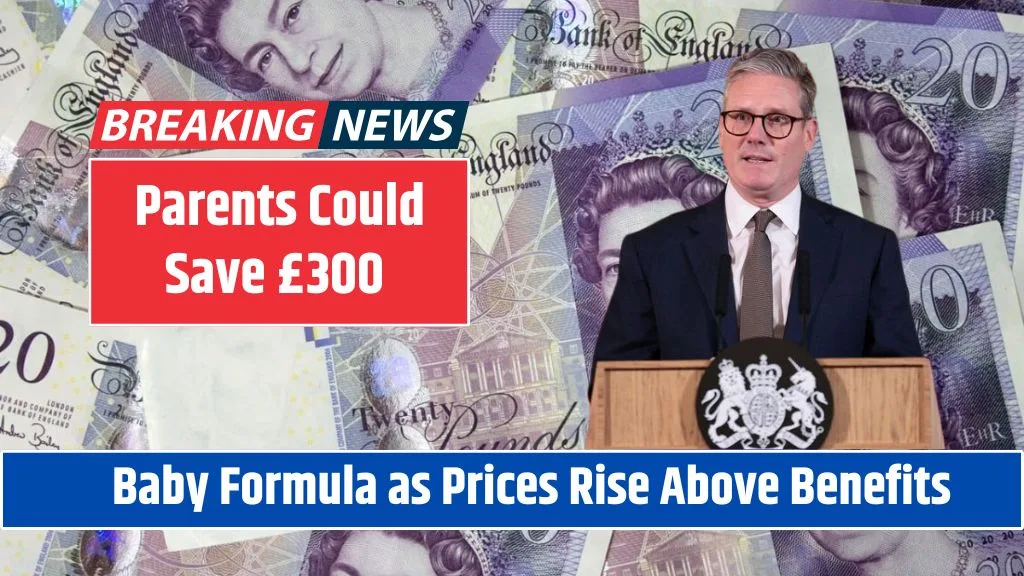The baby formula industry is facing calls for major reforms as regulators warn that high prices are forcing struggling parents to make difficult financial sacrifices. The Competition and Markets Authority (CMA) has proposed sweeping changes to tackle high costs and misleading branding, aiming to help parents save up to £300 a year.
Why Are Baby Formula Prices a Concern?
Over the past two years, baby formula prices have surged by 25%, making it increasingly difficult for low-income families to afford. The weekly cost of formula often exceeds the value of government benefits, leading some parents to go without food just to feed their babies.
Sophie Livingstone, CEO of Little Village, a baby bank service, highlighted the impact:
“Nearly one in 10 families we support are watering down formula to make it last longer. The cost is simply too high, adding pressure when families are already struggling with housing, energy, and food expenses.”
Key Changes Proposed by the CMA
To reduce costs and improve transparency, the CMA has suggested several measures:
1. NHS Non-Branded Baby Formula
- The NHS could introduce its own non-brand baby formula to drive prices down.
- Hospitals should provide unbranded formula to prevent parents from being influenced by specific brands when they are in a vulnerable situation.
2. Clearer Packaging and Labeling
- Formula packaging should display nutritional information more clearly.
- Any unverifiable claims about health benefits should be banned to prevent misleading parents.
3. Encouraging Lower-Priced Products
- Parents could save up to £300 a year by switching to cheaper formula brands.
- The NHS advises that all baby formulas meet nutritional needs, regardless of brand or price.
Why Isn’t There a Price Cap?
Despite concerns, the CMA has not recommended a price cap. Last year, the regulator considered introducing price controls, but it ultimately decided against it. Sarah Cardell, CEO of the CMA, explained:
“Many parents pick a brand at a vulnerable moment, based on incomplete information, often believing that higher prices mean better quality. But NHS advice confirms that all formulas meet the required nutritional standards.”
Who Controls the Baby Formula Market?
The UK baby formula industry is dominated by three companies:
- Danone
- Kendal
- Nestlé
Together, these brands control 90% of the market, limiting competition and keeping prices high. The CMA believes introducing non-brand options and improving transparency could help reduce costs for parents.
What Happens Next?
Regulators will continue working with industry leaders, government bodies, and consumer groups to explore how these recommendations can be implemented. Advocacy groups are also pushing for the Government to provide clearer guidance on how baby banks can safely supply formula to families in need.
With baby formula prices soaring, the CMA’s proposed changes could offer much-needed relief to struggling parents. By introducing non-brand options, improving labeling, and promoting affordable choices, regulators aim to reduce financial pressure on families while ensuring babies receive proper nutrition. However, the lack of a price cap means the fight for fairer baby formula pricing is far from over.
Source: Link
FAQ’s
Why is the cost of baby formula so high?
Baby formula prices have risen by 25% in the past two years, with only three major companies controlling 90% of the market, limiting competition.
How much could parents save with cheaper formula?
The CMA estimates that parents could save around £300 per year by switching to lower-priced baby formula brands.
Will there be a price cap on baby formula?
No, the CMA has decided against implementing a price cap but is exploring ways to introduce non-brand options to lower costs.
What changes are being proposed for baby formula?
The CMA suggests introducing NHS non-brand baby formula, banning misleading claims, and making nutritional information clearer on packaging.
Can baby banks provide formula to struggling families?
Currently, baby banks face restrictions on supplying formula, but campaigners are urging the government to introduce clear guidelines for safe distribution.











